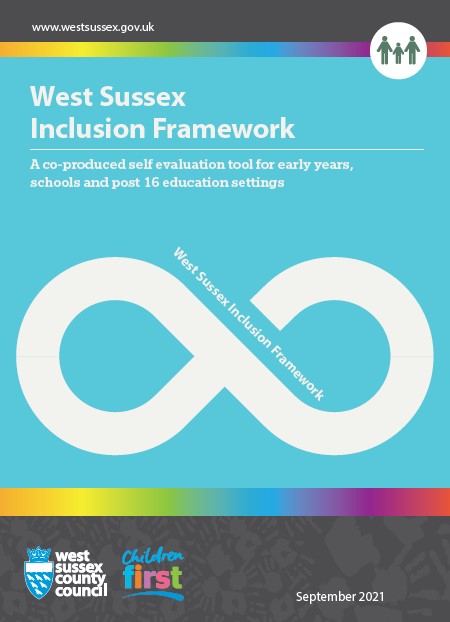
West Sussex Inclusion Framework September 2021 doc
Is there evidence that…
- The curriculum is geared towards ambitious outcomes for all and designed to give all children and young people (CYP), particularly the most disadvantaged, the knowledge and cultural capital they need to succeed in life.
- The curriculum is designed to enable all CYP to develop a range of skills and abilities to prepare them for their life now and in the future, in their community and beyond. It is also designed with the needs of all CYP at its centre.
- The curriculum is designed to incorporate a variety of ways that engage all CYP, including those operating at a younger developmental age.
Discussion prompts / evidence of impact
- The link between emotional regulation and readiness to learn is understood by all staff.
- Social and emotional learning is viewed as pervading all aspects of the curriculum with CYP being given opportunities to learn about the language of emotion and to practise it in a range of opportunities.
- The curriculum is aspirational. CYP study a full range of subjects for as long as possible.
- The curriculum is specifically adapted, designed and developed to be ambitious and meet the needs of all CYP. The curriculum is carefully planned and sequenced towards accumulating sufficient knowledge and skills for future learning and employment.
- Curriculum design is created in response to the needs of the CYP in the school and is fully reflective of the wider community. These needs and characteristics are reflected throughout all aspects of the curriculum. Members of the wider community are regularly asked to contribute to planning that adds to the richness and diversity of the curriculum and counters stereotypes.
- The school has a long-term map showing the learning topics, knowledge and progress of skills.
- Disadvantaged CYP develop the knowledge and ‘cultural capital’ they need to succeed in life. Cultural capital refers to the essential knowledge and skills that a CYP will need to prepare them for their future success.
- Reading and communication are at the heart of the school’s curriculum because leaders recognise the importance of these skills for wider curriculum access.
- A whole school approach to developing a needs-based curriculum for Relationships Health and Sex Education (RHSE) (such as WSCC Education for Safeguarding) is clearly evidenced and CYP voice reflects this. Cross curricular links are made so that social and emotional learning is fully reflected across the wider ‘Curriculum’.
- The organisation of the curriculum ensures CYP are ready to learn. There is a balance of opportunities that combines active learning with more traditional receptive learning, co-operative and individual learning and multi-sensory learning.
- Preparation for adulthood starts at the earliest opportunity taking a coherently sequenced approach. Planning is personalised and includes travel training, preparation for employment, participation in society, keeping healthy and independent/supported living. Leaders are ambitious for CYP to have the skills and knowledge to lead a good adult life. CYP and parents are fully engaged in this process. For CYP with an Education, Health and Care Plan (EHCP), preparation for adulthood planning is evidenced in the Annual Review process.
- The school can demonstrate how it works strategically and takes active steps to support those who may have missed opportunities in early life or need additional challenge to propel their progress. CYP are given opportunities to recap and practise previously learnt or missing skills.
- Individual provision maps or individual learning plans detail adjustments to quality first teaching, or aspects of the curriculum to be followed, which enable CYP to participate fully and achieve alongside their peers.
- The special educational needs co-ordinator (SENCO) supports class teachers to ensure that ‘Ordinarily Available Inclusive Practice’ is provided in line with the needs of the child.
- CYP are involved in the choosing, planning and organisation of visits/events/extracurricular activities, linked to their interests and needs. There are opportunities for aspects of the universal curriculum to be co-produced with CYP, community groups, businesses, specialist and other external visitors. This is to improve social skills, self-belief and promote independent learning to ensure that all CYP are ready for the next stage of education, employment or training.
Last updated 16 August 2021
 Tools for Schools
Tools for Schools